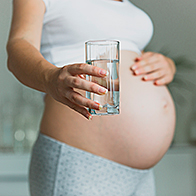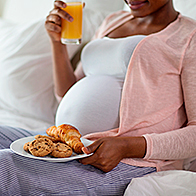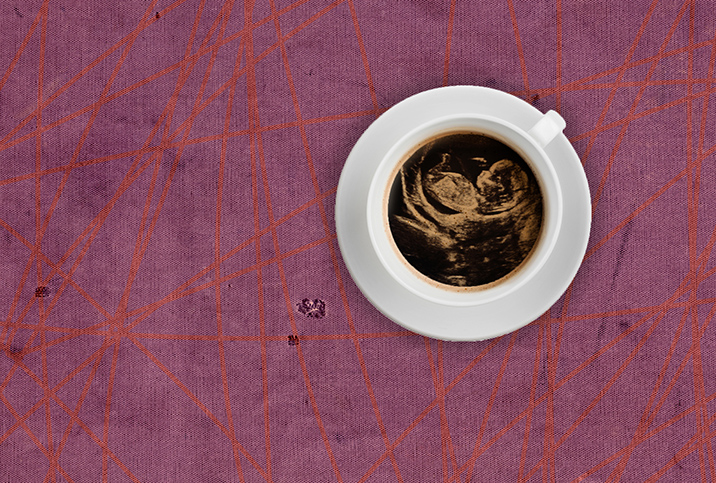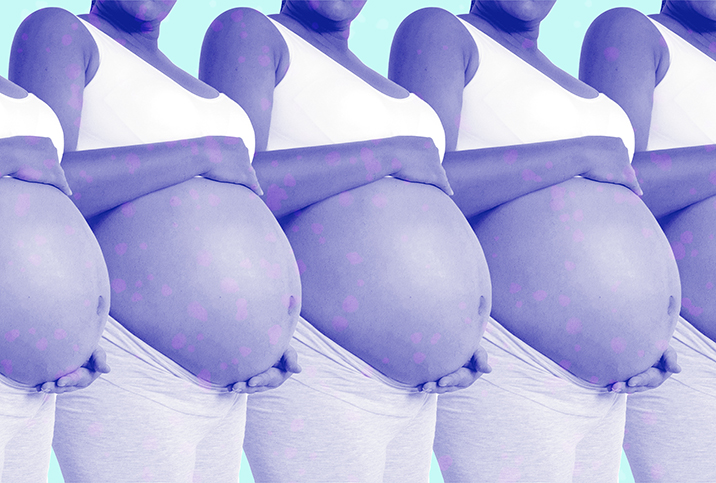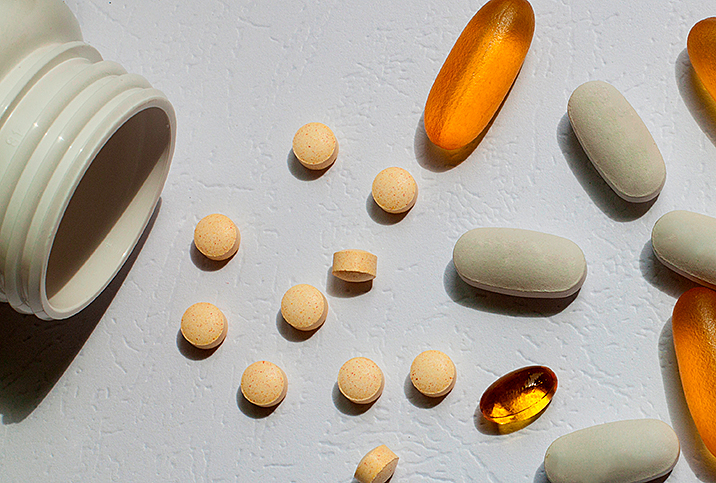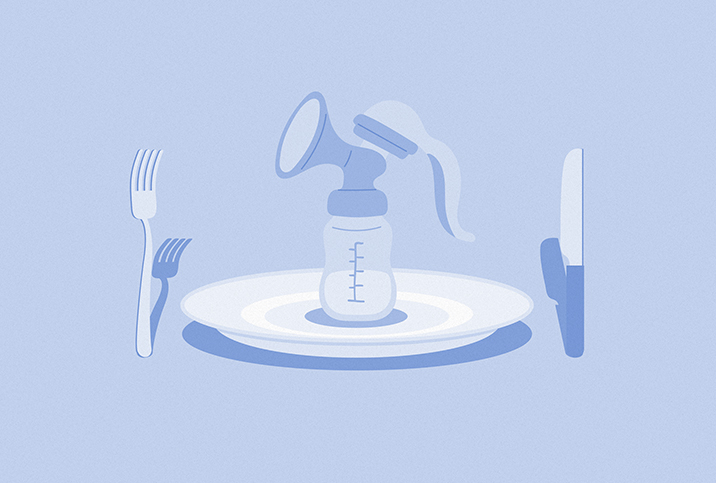7 Best Foods to Eat When Pregnant
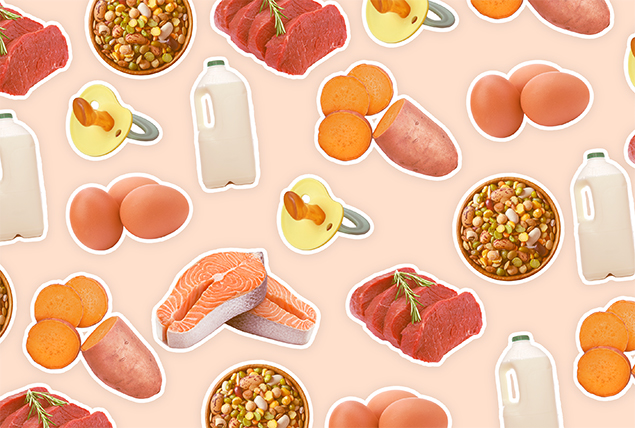
Eating a healthy diet can be challenging enough when you don't have hankerings for fried pickles and peanut butter or beef jerky on ice cream. But nutrition is more important than ever when you're eating for two.
"Your body will have extra demands, and good nutrition is one of the best things to help with your pregnancy," said Monte Swarup, M.D., an OB-GYN with New Horizons Women's Care in Chandler, Arizona, and the founder of Vaginal Health Hub. "The objective is maintaining a healthy weight while also getting proper nutrients to help support your fetus' growth."
To help make things easier, we spoke with three experts to find the best foods to eat when pregnant and how much to munch to strike that perfect balance.
How many calories should a pregnant person eat?
You'll likely feel much hungrier during pregnancy because your body needs more energy to feed your growing baby. Fulfilling that need is crucial, but be careful not to overdo it. How many calories a day does a pregnant woman need?
Experts said that how many calories you need each day depends on your age, activity level, pre-pregnancy weight, how many fetuses you're carrying and which trimester you're in.
In general, doctors typically recommend pregnant people with one fetus consume an extra 340 calories on average per day during the second semester, while those carrying twins will need about 600 extra calories, Swarup said.
During the third trimester, you need to eat a bit more. Most people pregnant with one fetus should aim for about 500 extra calories during this period.
However, doctors might recommend eating more or less depending on your individual health needs, said Yelena Wheeler, M.P.H., a registered dietitian nutritionist in Los Angeles.
"Eating enough during pregnancy is important because the developing baby requires a steady supply of nutrients to grow and develop. Dieting or not consuming enough calories can lead to complications like low birth weight or preterm labor," said Neha Pathak, M.D., chief physician editor at WebMD in Elizabeth, New Jersey. "However, consuming too many excess calories can lead to excessive weight gain, which can also negatively affect both the mother and baby."
Adverse effects of excessive weight gain can include high blood sugar and gestational diabetes, Wheeler said.
Gestational diabetes may raise the risk of complications such as premature birth, miscarriage or stillbirth, according to the National Institute of Health (NIH).
High blood sugar can also cause babies to be larger than usual, making labor and delivery more challenging and increasing their susceptibility to breathing difficulties or low blood sugar after they're born.
It's important to try to maintain a healthy weight during pregnancy. Speak with your doctor to learn what that means based on your pre-pregnancy weight and current health.
7 foods to eat when pregnant
Beyond calories, you need to make sure you getting enough of certain nutrients that are critical for the fetus' development and your health.
One of the best ways to do this is by taking a good prenatal vitamin. But it also helps to pack your plate with nutrient-rich foods. Here's a better idea of what to eat during pregnancy.
Enriched cereals, rice and pasta
Many grain-based foods, including cereals, rice, pasta and bread, are fortified with folic acid, the synthetic form of folate, or vitamin B9. The nutrient helps to form the neural tube and prevent severe congenital disabilities, such as spina bifida and anencephaly, where the baby is born with an underdeveloped brain and skull.
Experts recommend supplementing your diet with folic acid before you conceive and in the first 12 weeks of pregnancy. Most pregnant people need about 600 micrograms of folate or folic acid per day, Swarup said.
Other good sources of folate include:
- Peanuts
- Dark, leafy green vegetables
- Sunflower seeds
- Beans
Dairy products
Dairy products are the most reliable source of calcium, a mineral that promotes strong bones and teeth and helps develop the fetus' nerves, muscles and circulatory system. Most pregnant people need 1,000 mg of calcium per day, Swarup said.
Dairy foods can also be a good source of B vitamins, magnesium, zinc, protein and vitamin D.
By promoting the absorption and metabolism of calcium and phosphorus, vitamin D helps to support healthy skeletal development and maternal bone health, according to Pathak.
Vitamin D also supports a healthy immune system and reduces the risk of preeclampsia, a serious pregnancy complication that can lead to high blood pressure and other issues.
Most pregnant women need about 600 international units of vitamin D (about 15 mcg) per day, Swarup said. That can be difficult to attain if you don't eat meat or dairy or if you live in an area with little sunlight, so your doctor may recommend a supplement.
Select dairy products with low-sugar or no sugar added. Greek yogurt and Skyr tend to have less sugar and more protein than other yogurts and contain probiotics, beneficial bacteria that can help maintain a healthy gut microbiome.
Other sources of calcium include sardines and dark, leafy, green vegetables.
Other sources of vitamin D include:
- Sunlight
- Fatty fish, such as salmon and sardines
- Eggs
- Red meat
- Fortified plant milk
Red meat, pork and poultry
Meat—especially red meat—is the best dietary source of iron, which helps the body produce hemoglobin, a protein in red blood cells that helps deliver oxygen to the fetus.
Because pregnancy increases blood volume, especially in the third trimester, you'll need more iron than usual. For most people, that means 27 mg per day, Swarup said. Inadequate iron can lead to iron-deficiency anemia, which increases the risk of premature birth, low birth weight and postpartum depression.
Beef and pork are high in choline, protein and B vitamins, including B12, which helps to maintain your nervous system and supports red blood cell production in the fetus.
B12 may reduce the risk of neural tube defects like spina bifida when combined with folic acid, according to the American Pregnancy Association (APA). Doctors recommend getting about 2.6 micrograms of B-12 a day, Swarup said.
Because it's challenging to get enough iron or B12 from non-animal sources, vegetarians and vegans will likely need a supplement, according to Swarup.
Other sources of B12 include:
- Fish
- Milk
- Poultry
- Fortified cereals
Other sources of iron include:
- Beans, peas and lentils
- Iron-fortified cereals
- Prune juice
- Soy products, such as tofu and tempeh
- Pumpkin, sesame, flax and hemp seeds
Salmon and cod
Experts recommend pregnant people steer clear of many seafood types—these include tuna, swordfish, shark, marlin and mackerel—because they can contain high levels of mercury. That doesn't mean you have to avoid all fish.
Fish such as salmon and cod can deliver substantial health benefits during pregnancy and are generally considered safe in moderation.
For example, salmon and cod can be a good source of protein and omega-3 fatty acids—healthy fats that promote healthy fetal brain and eye development. They can also support cardiovascular health, according to Cleveland Clinic.
Moreover, salmon is a good source of iodine, a nutrient that supports the thyroid, a butterfly-shaped gland in the front of the neck that produces hormones essential for reproductive health and fetal development.
During pregnancy, the thyroid works overtime, producing about 50 percent more hormones than usual, and extra iodine is necessary to support the development of the fetus's brain, nervous system and thyroid. The recommended amount for most pregnant people is 229 micrograms, Swarup said.
Other iodine sources include:
- Iodized table salt
- Dairy products
- Cranberries
- Meat
- Eggs
- Seaweed
Eggs
Eggs are known as the "perfect protein" because they contain all nine essential amino acids—or those the body can't produce itself. They are also an excellent source of healthy fats and several vitamins and minerals, including choline.
Choline supports several physiological processes, including the fetus' brain and spinal cord development. It may also improve cognition. Children born to pregnant people who consumed sufficient choline during pregnancy were more likely to have better-sustained attention abilities years later, suggested a 2021 study.
During pregnancy, most people should consume 459 mg of choline daily, on average, according to Swarup. The average egg contains about 147 mg.
Other sources of choline include:
- Milk
- Eggs
- Peanuts
- Soy products
- Cruciferous vegetables, such as, cauliflower, cabbage, kale, garden cress, bok choy, broccoli and Brussels sprouts
- Nuts and seeds, including almonds, flaxseeds and sunflower seeds
- Quinoa
- Mushrooms
Legumes
Lentils, peanuts, peas, beans, soybeans and chickpeas are legumes. Besides being great sources of plant-based protein, they can provide folate and other vitamins and minerals.
Chickpeas, for example, are high in vitamin B6, which supports a fetus' brain and nervous system development, including the production of serotonin and norepinephrine, two essential neurotransmitters.
Vitamin B6 also promotes the formation of red blood cells and antibodies and supports a healthy metabolism, helping the fetus convert protein and carbohydrates into energy. About 1.9 mg of B6 per day is ideal, Swarup said.
Legumes of all kinds are high in fiber, which can help alleviate constipation, a common and uncomfortable pregnancy side effect. The American Pregnancy Association (APA) recommends eating 25 to 30 grams of fiber a day.
Other sources of fiber include:
- Whole grains
- Fruits and vegetables such as apples, broccoli and dark, leafy greens
Other sources of B6 include:
- Beef
- Pork
- Whole-grain cereals
- Bananas
- Potatoes
- Winter squash
Sweet potatoes
Sweet potatoes are packed with nutrients, including magnesium, fiber and beta-carotene, which the body converts to vitamin A. While it's best known for promoting good eyesight, vitamin A also supports healthy skin and immune system function in the fetus.
However, excessive vitamin A, especially early in pregnancy, has been linked to an increased risk of miscarriage and congenital disabilities, a 2019 report suggested. Avoid eating liver; a serving can contain more than six times the daily recommended amount of vitamin A. Talk to your doctor to ensure you're not getting too much. About 770 micrograms of vitamin A per day is suitable for most people, according to Swarup.
Sweet potatoes are also high in vitamin C, which supports the development of fetal gums, teeth and bones. Most pregnant people need about 85 mg per day.
Other sources of vitamin A include:
- Carrots
- Green leafy vegetables
- Sweet potatoes
- Cheese
- Eggs
Other sources of vitamin C include:
- Citrus fruits
- Strawberries
- Broccoli
- Tomatoes
- Bell peppers
- Potatoes
- Brussels sprouts
The bottom line
Healthy eating during pregnancy supports your well-being and your baby's. For most people, a balanced, varied diet with plenty of protein and fiber will provide the most essential nutrients, but doctors typically recommend a prenatal supplement to fill any gaps.
Speak with your doctor to learn more about the nutrition during pregnancy your baby will need.







